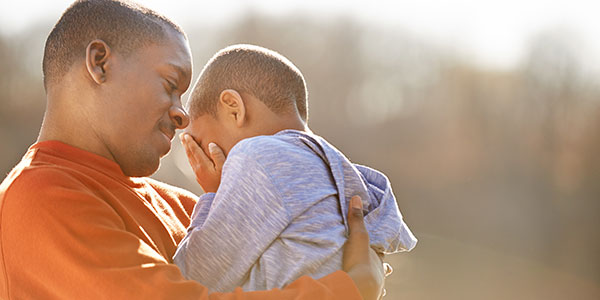Depression Symptoms by Age Group
The signs of depression don’t look the same in everyone. In fact, they can vary quite a bit from one person to another, and especially from one age group to another.
In addition to obvious mood changes and other typical symptoms, depression indicators can include behavior changes and physical complaints as well as more subtle signs. Here are some red flags for each age group, along with common triggers and what you can do to help.

Children
Depression isn’t common in children under 12, but it does occur. Along with feeling sad or hopeless, common signs include:
- anxiety
- avoiding school and social activities
- changes in eating habits
- clinginess
- difficulties with family members
- a loss of interest in fun activities
- problems at school
- weight gain or loss
Many factors can trigger depression in children:
- abuse
- domestic violence
- divorce and other family stressors
- learning problems
- the loss of a pet, friend or family member
- moving to a new town or school
- parental depression
Talking with a therapist benefits even young children. If you think your child might need help, ask your pediatrician, a school counselor or another therapist for a referral to someone who specializes in working with children.
Teens
Wide mood swings are normal in those ages 12 to 18, but to be on the lookout for depression. Watch closely for behaviors like these:
- avoiding friends and others
- feelings of worthlessness, anger and extreme sensitivity
- a loss of interest in activities
- mood changes that last longer than a few weeks
- problems at school, home or with friends
- self-harm behaviors such as cutting and alcohol or drug use
- sleeping or eating too much
- unusual levels of irritability and lashing out
Many of the same life issues that affect young children can lead to depression in teenagers. In addition, depression in teens may arise from:
- hormonal issues
- lack of sleep
- pressures to fit in, succeed and mature
- rejection by peers
- sexuality concerns
If you suspect your teen might be depressed, broach the subject with a low-pressure talk while you’re in the car or on a walk. Encourage your teen to confide in someone; if not you, then a friend or a teacher. And make an appointment with your teen’s primary care doctor, who can determine if symptoms are due to a physical problem, such as hypothyroidism. The doctor can also evaluate your teen for possible referral to a mental health professional.
Young Adults
Young adults ages 19 to 29 sometimes develop depression due to:
- lack of coping skills
- lack of support in new environments
- major life transitions
- poverty
- relationship issues
- trauma
- work issues
What can you do to help? It’s important to build a support system during this time of life, so help your loved one to stay connected with others, and talk about how they can prepare for big life transitions. Encourage them to talk with their doctor about symptoms, and to possibly see a therapist.
Midlife Adults
Adults ages 30 to 60 tend to have a lot going on that can trigger depression:
- caring for children as well as aging parents
- dealing with major illnesses
- financial stress
- isolation
- menopause and perimenopause
- work and relationship issues
- lots of responsibilities with no relief in sight
In addition to the standard signs of depression, some people might exhibit drug or alcohol abuse, anger, risky behavior, and abusive or violent behavior.
Encourage your friend or loved one to open up to you. Listen to their concerns and symptoms. Suggest they take some steps to take care of themselves. Also suggest they visit their primary care doctor for a depression assessment and to see if medications or physical issues could be at the root of their problems.
Senior Adults
Depression is not a normal part of growing older, but it is all too common — and is frequently overlooked and left untreated.
Symptoms of depression in seniors include:
- anxiety
- fatigue
- issues with focusing or making decisions
- sadness
- trouble sleeping
Also keep an eye out for mood changes that don’t let up (grief over losing a loved one, for example, should ease eventually). Physical aches and pains are often signs of depression as well.
Many seniors develop depression from dealing with common late-life issues: social isolation, major life losses such as the death of a spouse, financial stress, and major health problems. Illnesses and medications can also set off symptoms.
If you know a senior who might be depressed, ask about their life and concerns. If possible, create some social outlets. And suggest they talk with their doctor about their symptoms. Many people don’t realize that feelings of sadness and hopelessness are not the norm for older people, and that treatment can help.
Your Mental Health Matters
Talk to someone who cares. Our mental health providers are here to support you.




